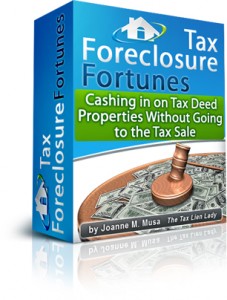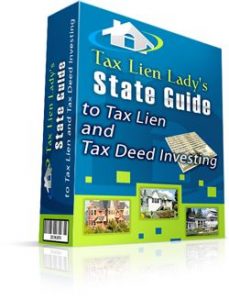This content is protected against AI scraping.
 A couple of years ago I interviewed Cody Matousek, real estate and tax deed investor about the excess proceeds strategy. That is buying a tax deed property directly from the owner of the property before it goes to the tax sale and then letting the property go to tax sale and collecting the excess proceeds or “over-bid.” This telesemianr was recorded and the audio along with the transcript was turned into a course. Over the next few months I added valuable resources to this course including a Manual, FAQ sheet, sample letters, sample quit claim deed, sample script, check lists, and bonus audios and videos.
A couple of years ago I interviewed Cody Matousek, real estate and tax deed investor about the excess proceeds strategy. That is buying a tax deed property directly from the owner of the property before it goes to the tax sale and then letting the property go to tax sale and collecting the excess proceeds or “over-bid.” This telesemianr was recorded and the audio along with the transcript was turned into a course. Over the next few months I added valuable resources to this course including a Manual, FAQ sheet, sample letters, sample quit claim deed, sample script, check lists, and bonus audios and videos.
I made the course available for the low price of $47.00 with the understanding that once the first 100 units were sold I would raise the price to $97. But I never raised the price of this course. In fact because of the weak real estate market and uncertain economic times I’ve decided to add even more value to the course and keep the price at $47.00!
The Tax Lien Foreclosure Fortunes course has recently been updated to include a 2 new bonus training videos and one month access to TaxLienLady’s members area. If you’ve already purchased Tax Foreclosure Fortunes, you’re entitled to these updates and an extra savings on my brand new course More Profit From Tax Liens.
If you haven’t looked at the Tax Foreclosure Fortunes course, now is the time to do it. Just go to www.TaxForeclosureFortunes.com and get a free preview of what’s in the course.



By Steve Duke September 17, 2011 - 9:34 pm
If I bid in excess of the past due taxes on a property at the tax sale in the state of Georgia, do the excess proceeds from the sale go to satisfying any federal tax liens after the local taxes are made current? If so, could this excess amount influence the IRS to not exercise their right of redemption if the amount is attractive enough to approach satisfying their lien?
By Joanne September 19, 2011 - 9:41 am
Hi Steve,
this is a question for a Georgia attorney who is verses in real estate and redeemable tax deeds. I believe that the owner of the property or any lien-holder (and that would include the IRS) can apply for the excess proceeds. Whether that would prevent them from redeeming the property depends on if they get all the money that is owed them or not. They only want what is owed to them. They do not want the responsibility of having to maintain or sell the property.
Please keep in mind that I am not an attorney and can not give you legal advice. My advice is for educational purposes only.